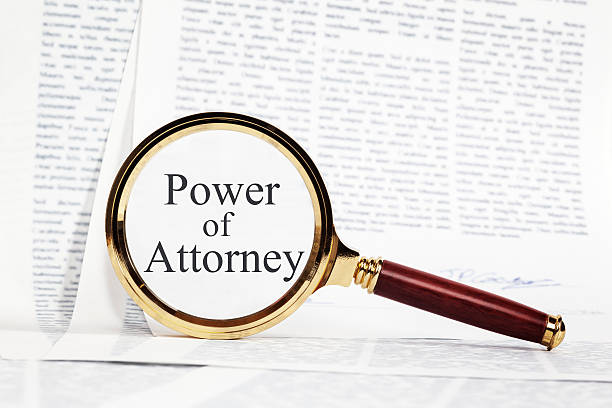Notarization Costs for Power of Attorney Documents

Introduction
When it comes to legal documents, ensuring their validity and authenticity is crucial. This is where notarization plays a vital role. Notarizing a power of attorney provides legal assurance and helps prevent fraud or disputes. However, one common concern among individuals is the cost associated with notarizing a power of attorney. In this comprehensive article, we will explore the factors that influence the cost of notarizing a power of attorney, discuss the average costs involved, and answer frequently asked questions regarding this topic.
What is a power of attorney?
Before delving into the cost of notarization, it’s essential to understand the concept of a power of attorney. A power of attorney is a legal document that grants authority to an individual, known as the agent or attorney-in-fact, to act on behalf of another person, referred to as the principal. This document enables the agent to make important decisions and handle legal matters on behalf of the principal, especially in situations where the principal may be unavailable or incapacitated.
How does notarization impact a power of attorney?
Notarizing a power of attorney adds an extra layer of assurance and authenticity to the document. When a power of attorney is notarized, a notary public verifies the identity of the individuals involved in the signing process. The notary public also confirms that all parties involved are signing the document voluntarily and without any duress.
Additionally, notarization ensures that the signatures on the power of attorney are valid and legally binding. This is particularly important when presenting the document to third parties, such as financial institutions or government agencies, who require proof of the document’s authenticity.
How much does it cost to notarize a power of attorney?
The cost of notarizing a power of attorney can vary depending on several factors. The following are some of the key factors that influence the cost:
1. Location
The cost of notarization can vary from one location to another. Different states or countries may have different regulations and fee structures for notarial services. It is essential to research the specific requirements and costs in your jurisdiction.
2. Notary Public Fees
Notary publics charge fees for their services, and these fees can vary. Some notaries charge a flat fee for each notarization, while others may charge an hourly rate. It’s advisable to inquire about the fees upfront and clarify whether there are any additional charges for travel or other services.
3. Complexity of the Power of Attorney
The complexity of the power of attorney document can also impact the cost of notarization. If the document contains multiple pages, special clauses, or requires additional witnessing, the notary public may charge higher fees to account for the additional time and effort involved.
4. Additional Services
In some cases, individuals may require additional services along with notarization, such as document drafting or legal advice. These additional services may incur separate charges, which should be discussed with the notary public beforehand.
5. Urgency
If you require expedited notarization services, such as same-day or after-hours appointments, the notary public may charge higher fees to accommodate your request. It’s important to communicate your time constraints to the notary public to determine if any additional charges will apply.
Average costs of notarizing a power of attorney

While the costs of notarization can vary, it’s helpful to have an idea of the average costs involved. The following figures provide a general estimate of what you might expect to pay for notarizing a power of attorney:
1. Flat fee: In some jurisdictions, notaries charge a flat fee for each notarization. This fee
typically ranges from $5 to $20 per document.
2. Hourly rate: Some notaries charge an hourly rate instead of a flat fee. The hourly rate can vary between $50 and $150, depending on the notary’s experience and location.
3. Travel fees: If the notary public needs to travel to your location, they may charge additional travel fees. These fees can range from $25 to $100, depending on the distance and time involved.
It’s important to note that these figures are average estimates and can vary significantly depending on the factors mentioned earlier.
FAQs about the cost of notarizing a power of attorney
1. Can I notarize a power of attorney for free?
While it’s uncommon to find notaries offering their services for free, some organisations or events may provide free notarization services on specific occasions. It’s advisable to inquire with local community centres, government offices, or legal aid organisations to see if any free notarization events are scheduled.
2. Can I use an online notary service to notarize a power of attorney?
Yes, online notary services have become increasingly popular in recent years. These services allow you to connect with a notary public remotely using video conferencing technology. However, online notary services may have their own fee structures, so it’s important to research and compare costs before proceeding.
3. Do banks offer notary services for power of attorney documents?
Many banks do offer notary services, including notarizing power of attorney documents. However, it’s advisable to check with your specific bank branch beforehand to ensure they provide this service and inquire about any associated fees.
4. Are there any additional costs involved in power of attorney notarization?
In addition to the notary fees, you may need to consider other costs, such as document preparation fees, legal consultation fees, or any fees associated with obtaining copies or certified copies of the notarized document.
5. Can I negotiate the cost of notarization with a notary public?
While it may be possible to negotiate the cost of notarization with a notary public, it’s important to approach this with respect and professionalism. Notary fees are typically based on industry standards and regulations, so keep in mind that there may be limitations to what can be negotiated.
6. Is notarization always required for a power of attorney?
Notarization requirements for power of attorney documents can vary depending on the jurisdiction and the specific purpose of the document. While notarization adds an extra layer of assurance and validity to the document, it’s important to research the legal requirements in your area to determine whether notarization is mandatory or recommended.
Conclusion
Notarizing a power of attorney is an important step in ensuring the document’s authenticity and validity. The cost of notarization can vary depending on factors such as location, complexity of the document, and additional services required. By understanding these factors and doing some research, you can have a better idea of the potential costs involved in notarizing a power of attorney. Remember to communicate with notaries, inquire about fees upfront, and clarify any additional charges to avoid any surprises. Notarizing your power of attorney can provide peace of mind, knowing that the document is legally binding and can be relied upon when needed.
